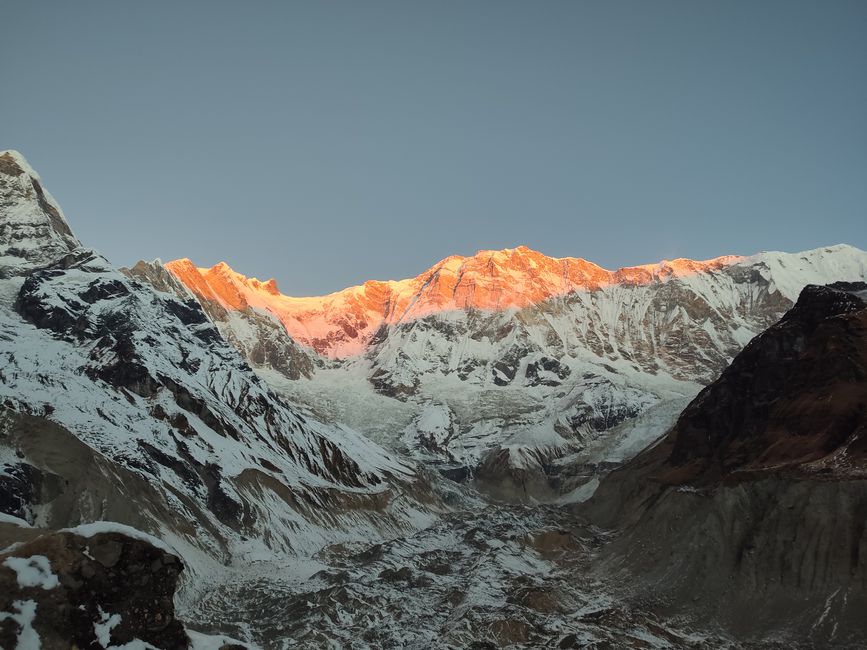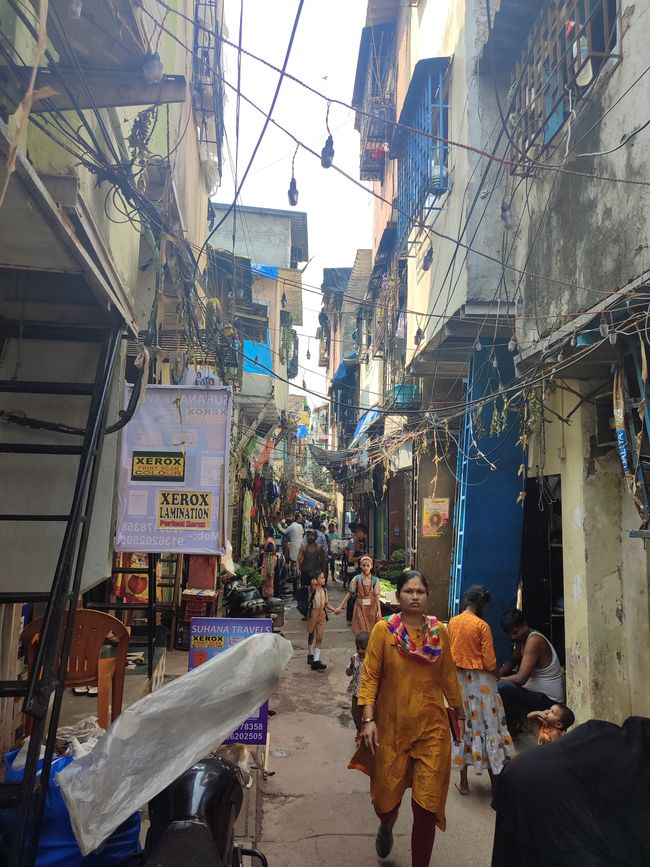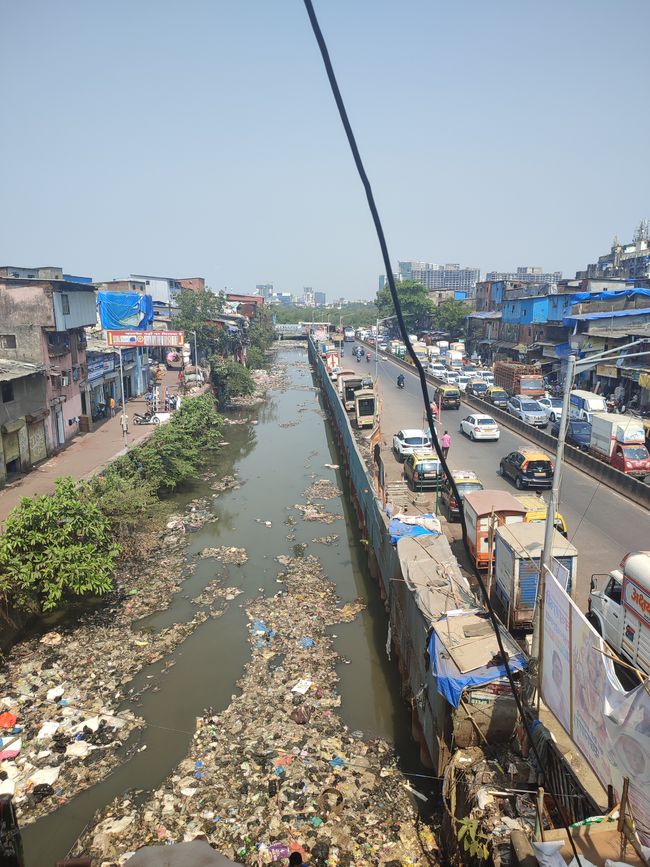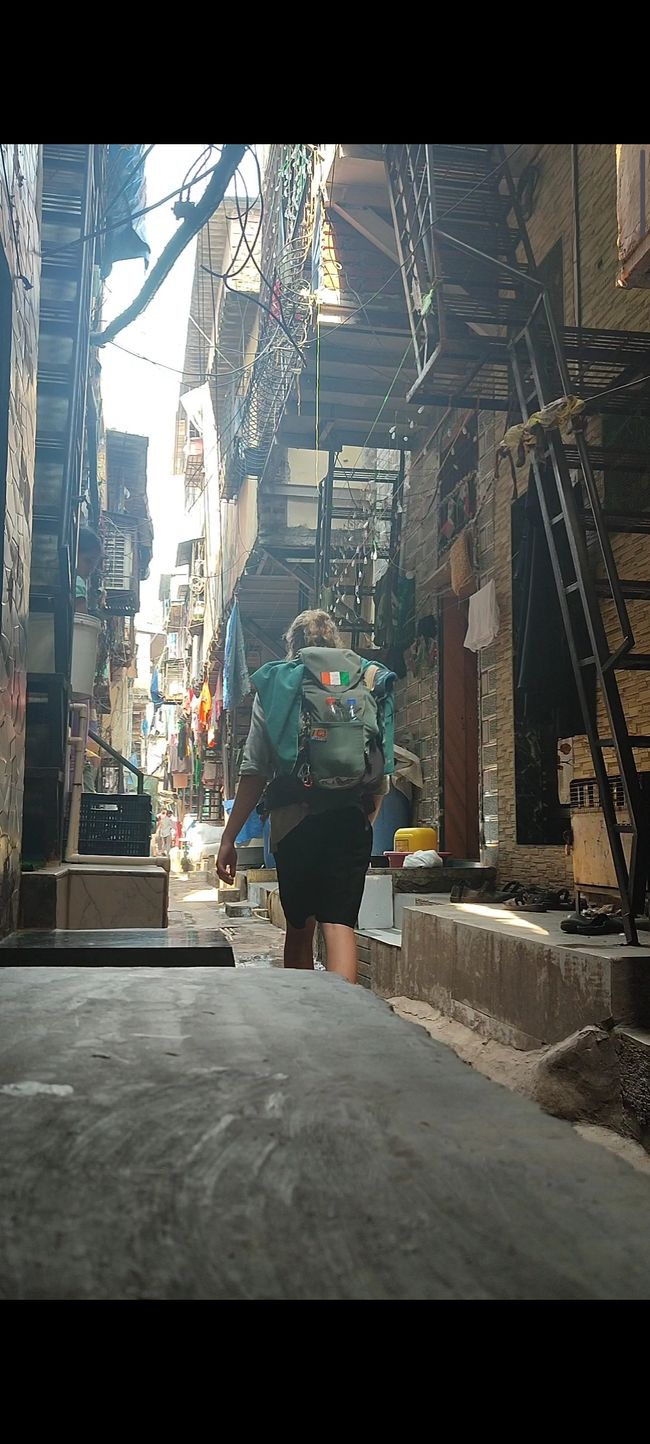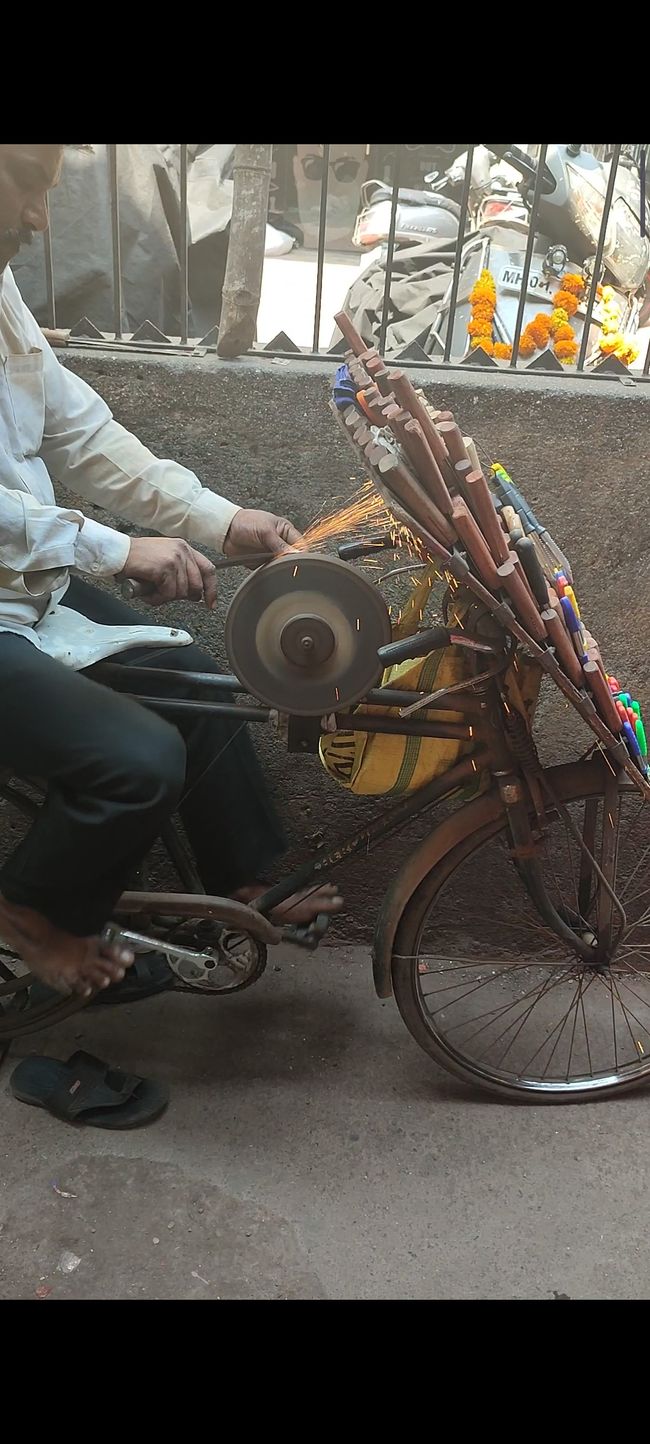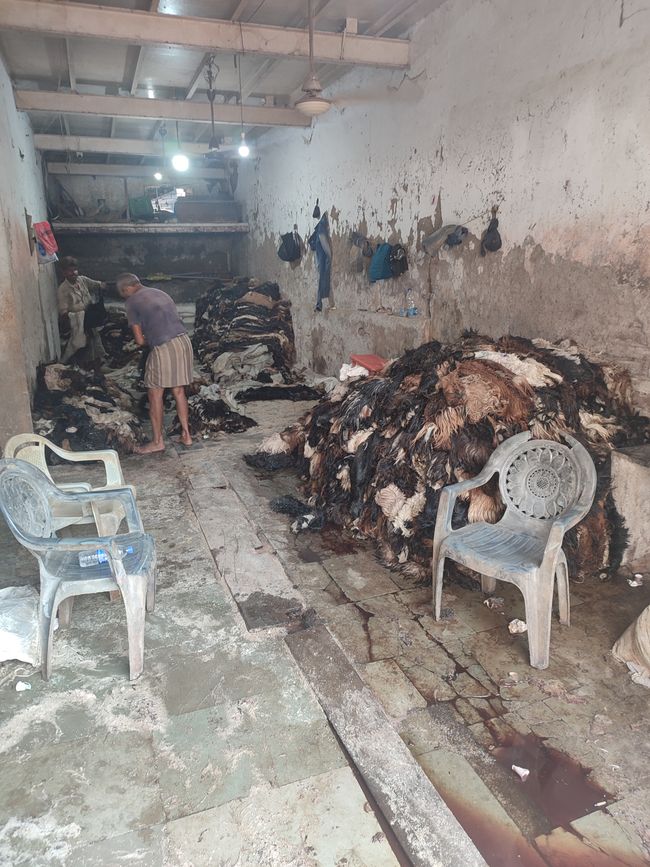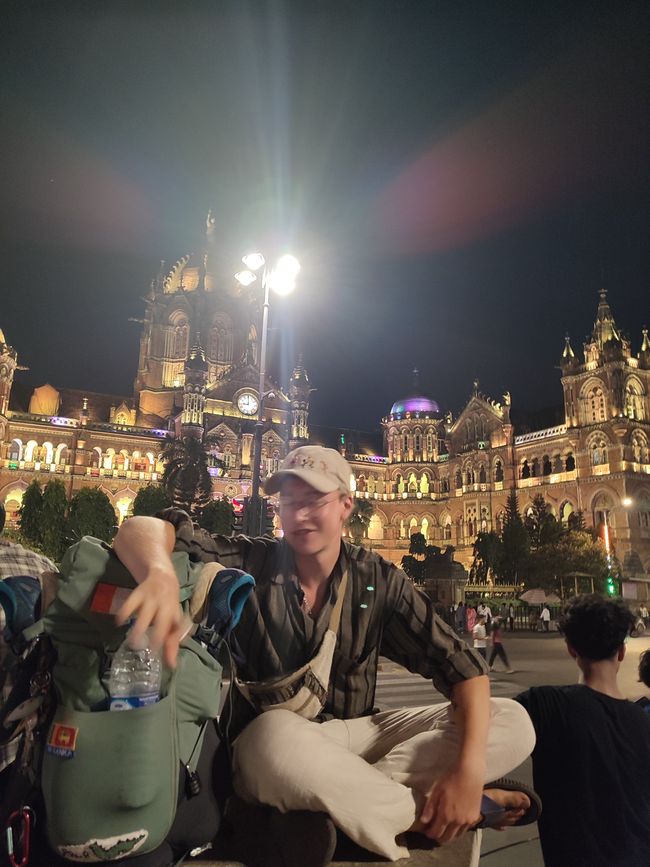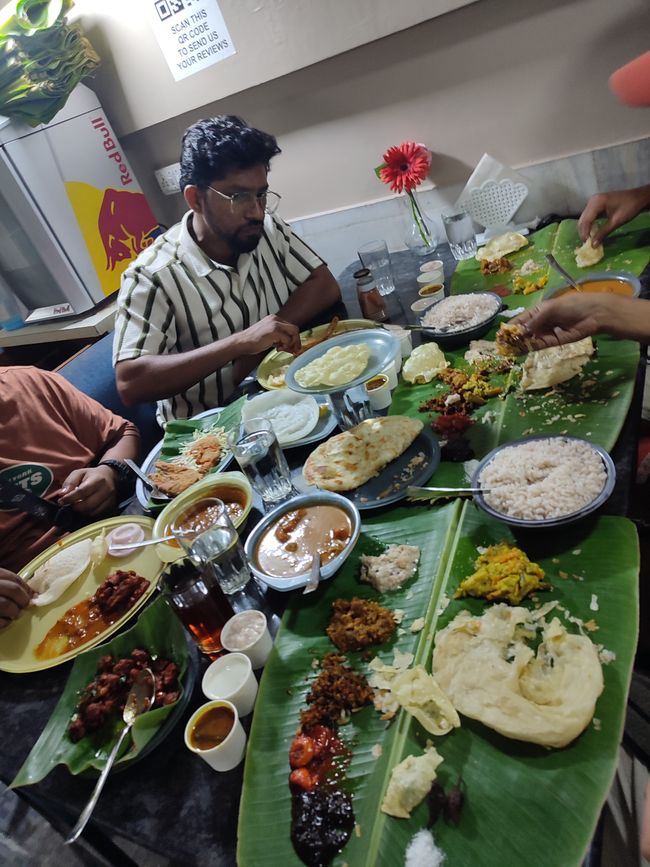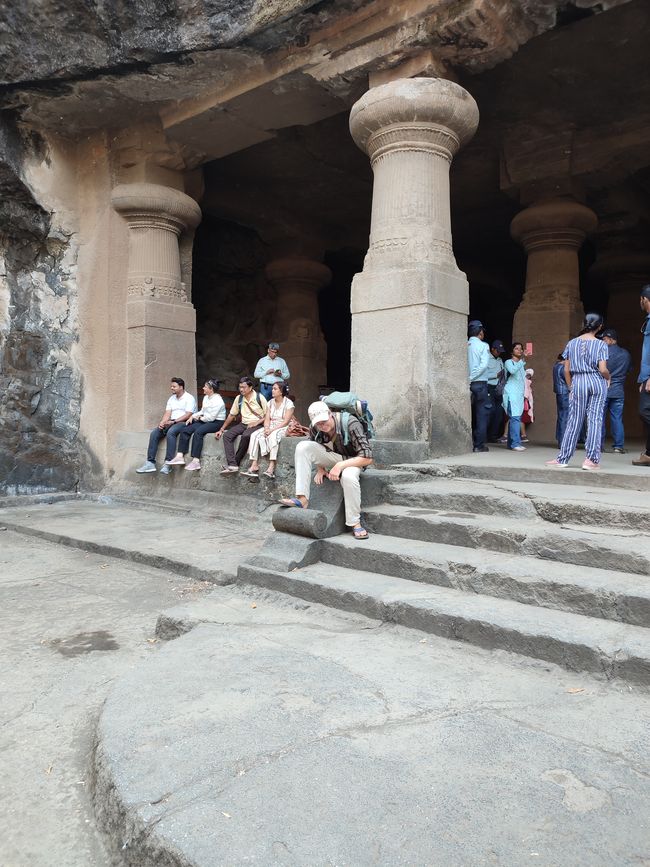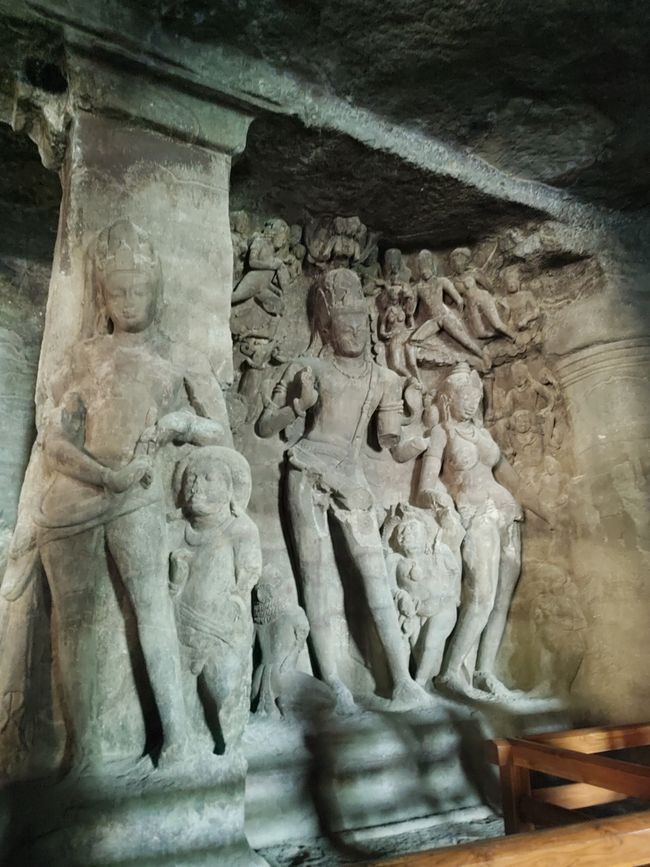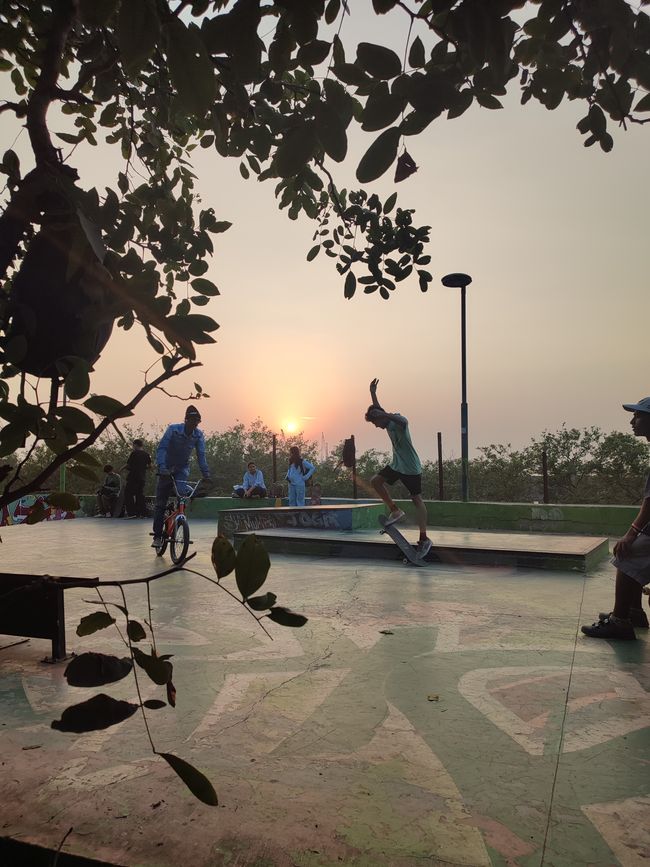Mumbai - If
પ્રકાશિત: 26.10.2023
ન્યૂઝલેટર પર સબ્સ્ક્રાઇબ કરો
Somehow I manage to make my night trips more and more adventurous and I'm starting to wonder where this will lead. Since I went to Mumbai too spontaneously, I couldn't get a place to sleep on the night train and had to travel in general class. The smell of urine was so strong in the crowded train compartment that after being exposed to the smell for so long, I was sure that I would be able to diagnose the passengers' diabetes based on their use of the toilet, like old doctors. I was forced to lie down on the dirty floor with the other passengers and try to sleep. I was woken up either by my back pain, the shaking of the train, the loud conversations of other guests or strange feet kicking around for space. At one point it got so loud that I was looking around to find out where the noise was coming from when I saw two people hitting each other in the face because one of them wanted to take the other's place to sleep and a third was peeing off the train. These are moments in which I learn transience. Yesterday in a casino on a luxury boat, now here in the next film scene.
After this restful night, I immediately set off to explore Mumbai with my backpack, as I would be traveling on late in the evening the next day. So I took a boat to Elephant Island, where huge temple complexes and sculptures were carved into rocks. There I met a group of Indian art students who I approached to praise their fascinating pictures and illustrations. So we started talking and spent the rest of the day together. The merry group then went to an art museum and a restaurant where my food was served on a banana leaf and the small, nicely arranged components were more colorful than any rainbow I have seen so far.
I said goodbye to the fun and alternative group, promising to buy a picture of them when I got back home, put my headphones in and strolled to the hostel for an hour with a really good techno track that Eva had recommended to me. Funnily enough, I met two German girls there who I also met about two weeks ago in Munar in the south. Happy and totally exhausted, I showered off all the dirt and sweat from the last 30 hours and went to bed.
The next day I actually wanted to organize a tour guide to explore the largest slum in Asia, the Dharavi Slum in Mumbai. Since I just couldn't manage to find someone at such short notice, I quickly set off myself and asked myself whether I would get out of there in one piece. But my optimism and curiosity finally persuaded me and it was absolutely worth it. In Europe, slums are always associated with poverty, misery, lack of opportunities and crime. Every single one of these assumptions is wrong as I learned today, but more on that in a moment.
So I strolled curiously through the small, dirty and winding streets, some of which were so narrow that only one person could fit through and in some places were as dark as night, even on the brightest day. There was plastic everywhere and all the buildings and corrugated iron houses looked as if the slightest gust of wind could blow them over. The eyes of all the residents were on me for the next three hours and the children either stopped playing and cautiously took a few steps away or were so curious and asked my name, where I came from, what I was doing here and so on and so forth. After mercilessly picking on a few little kiddies in a game of Batmanton on the street, I gained their respect and they followed me around like bodyguards for a few minutes. I drank a chai here and there and started talking to the salespeople and a young software engineer who promptly invited me to the best chai I've ever had and told me a lot about life in Dharavi and the image that many people have of slums .
Everyone here was full of energy, smiled and laughed a lot and seemed like they enjoyed living here. The young Indian told me that most people here work a lot and produce products, which I also noticed, and that they even earn quite a lot from it. 600-800 rupees per day, which is more than some graduates earn. But why do people live here under these conditions? I asked him and he gave me a very nice answer.
"People usually live here not because they have no other option, but precisely because they have the freedom to live here. When you live here, you work and live for the here and now. Not to buy a fancy car someday driving or sitting in the office, but to spend and master the days in the here and now with your family. You will find more happy and upright people here than in any bank. I also work outside the slum and have the money away to move, but I like my home and have a community that always helps out and is there for each other. The twenty to thirty percent of the slum residents who really have nothing and sometimes become criminals as a result are always sold by outsiders as the majority and as representatives of the Slums. If slums were portrayed realistically, then they wouldn't be half as interesting, because people live here like everywhere else, just under different circumstances, and live their lives, day after day."
I left Dharavi quite happy and impressed and thought about his words some more. I then visited a more than disappointing art museum and a skate park where teenagers were doing hip-hop on the half pipes at dusk. On the way there, as they often did, two small children came to me and begged for something to eat, so I bought them some and moved on. But the children asked for more money and held me until they suddenly thanked me and left. 30 seconds later, after my routine and obligatory grab for my wallet and cell phone, I realized that my wallet was no longer there. I immediately turned around and ran after the children. When I was with them I more than forcefully demanded my wallet back and gave them a moral lecture. I was damn lucky and the kids took my wallet out of a hiding place and gave it all back to me. I was angry and most of all shocked and kept walking, more attentive now. I spend 3 hours in a slum and my wallet is stolen in front of a pizzeria in an area where many Bollywood stars live. The fact that the whole thing was started by children made me speechless and desperate on the one hand and on the other hand it gave me understanding. Children who have no sense of morality, live in poverty, cannot reason about consequences and were raised that way simply cannot do much about it. So I'm not a fan of the two little crooks, but I don't want to judge them too much either.
At the end of the day and Mumbai, I went to a really fancy cinema and watched a Bollywood blockbuster in Hindi. The film was almost certainly the worst I've ever seen and I felt like I could say every word because it was so shallow and predictable, even though it was in Hindi. What I found interesting, however, were three things:
1. In all trailers for other films before the actual film, a Pakistani fanatic was the archenemy of the Indian protagonist, as well as the Russians in Hollywood. You can see again that conflicts are not only fought through wars, but can be seen again in so many areas, such as sport, art and science.
2. In the film, people smoked and drank to be cool the whole time and every time you saw a cigarette or alcohol, a message was displayed at the bottom right that smoking and alcohol are deadly and you should stay away from them. I've never seen such direct contradictions before.
3. The film seemed like it was thought up by a 12 year old who was just getting to know his sexuality but didn't understand anything about reality. Because somehow the whole film was super sexually charged, but not once was there a lot of skin, let alone breasts, intense kissing or making out, nor was there any hint of sex. The image of women was like something from the deep Middle Ages and each of the characters was so unlikeable or stupid that it was impossible to identify with one. The film was just bad from start to finish. Although the film only contained action, after laughing at the film for a long time at the beginning, I was just bored and left the cinema early. Action is not tension, tension is conflict with an unknown outcome. A conflict within a person or between different parties. This is such a simple rule of filmmaking and yet the film completely missed it because you always knew what was coming next and the conflict only came in the form of action or the already pathological sexual desire of the supposed "hero", which he wasn't could live out as easily as he wanted.
Afterwards I went to a nice restaurant to have something to eat and got a message from Lara that I was missing back home. This made me homesick on the one hand, but above all a permanent grin in the restaurant and my stomach was filled with warmth even before eating, because this missing is more than mutual (◍•ᴗ•◍)
ન્યૂઝલેટર પર સબ્સ્ક્રાઇબ કરો
જવાબ આપો
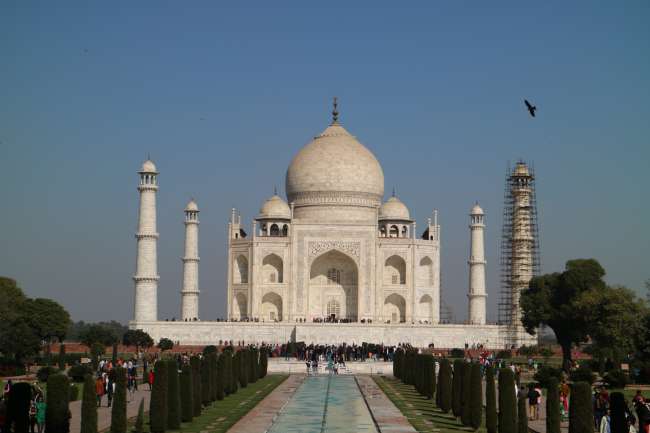
મુસાફરી અહેવાલો ભારત

